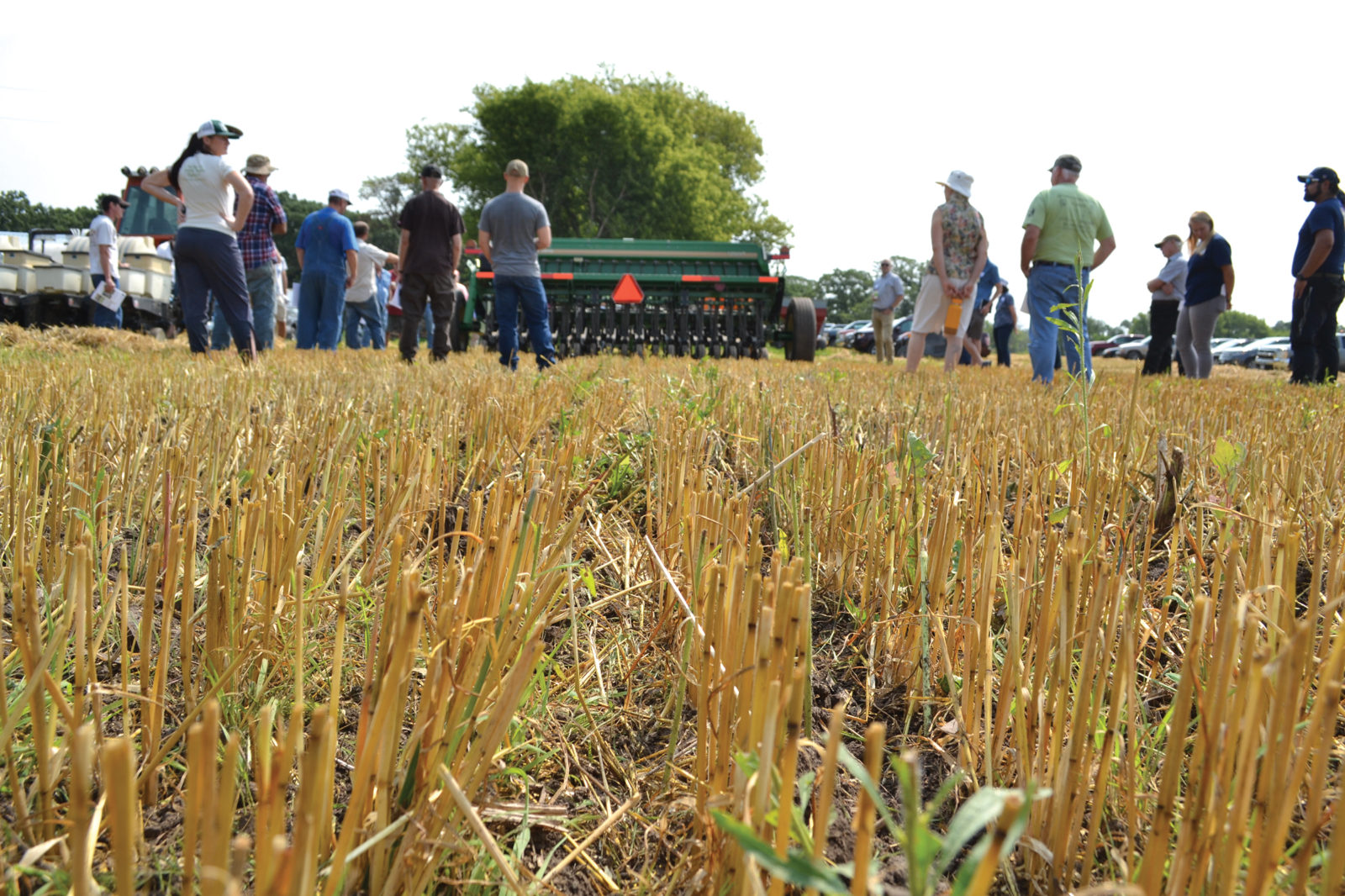BELLECHESTER, Minn. — Agricultural profitability and sustainability utilizing regenerative practices will be the focus of a “peer-to-peer” Land Stewardship Project (LSP) workshop Wednesday, March 1, from 9 a.m. to 3 p.m., at the Bellechester Community Center (101 1st Street). This free event includes lunch catered by Bridget’s Café. To reserve a spot by Feb. 27, register at https://bit.ly/LSPpeer. For more information, contact LSP’s Maura Curry at 651-249-6308 or mcurry@landstewardshipproject.org.
DIRECTIONS: The Bellechester Community Center is at the intersection of County Highways 7 and 16.
This workshop will feature insights from three of the region’s leading regenerative farmers — Tom Cotter, Martin Larsen and Tom Finnegan. They will lead peer-to-peer discussions about successful approaches to utilizing plants, animals and machinery to attain regenerative system success within a diverse sets of variables.
Cotter, who farms near Austin, Minn., will discuss “Maximizing the Full Potential of Regenerative Practices.” For over 25 years, he has been building soil health and steadily creating a regenerative operation utilizing diversified covers and crops, as well as the integration of beef cattle. Martin Larsen, who farms near Byron, Minn., will present on the “Economics of Adding a Small Grain to a Crop Rotation.” Larsen is a fulltime farmer and part-time Soil and Water Conservation District (SWCD) resource and water quality specialist, as well as an avid caver. In recent years, he has worked to utilize diversity as a way to build soil resiliency and expand into markets such as food-grade oats. “Changing Mindset” is the title of Austin-area farmer Tom Finnegan’s presentation. By adopting a sound mindset and through careful planning, he has built his operation while working fulltime off-farm. He direct-markets beef cattle and cover crops all of his acres.
This event will provide table discussions assisted by the three speakers and other leading regenerative farmers from the region, along with SWCD resource specialists from Wabasha and Goodhue counties. Participants will have opportunities to have peer-to-peer conversations about machinery, planning for diverse plantings, animal integration, and mapping out regenerative strategies. Topics covered include cover crops, diverse crop rotations, interseeding, grazing, machinery customization, cost-share programs and soil testing.
-30-
